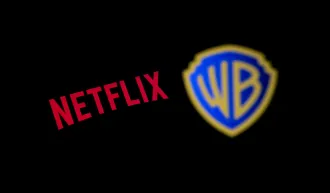December 15, 2011
| by Louise LeeSally Osberg can imagine future news headlines that might say, “New AIDS Cases Fall to Zero.” Or, “Child Soldiers Exchange Guns for Books in Africa.” Or perhaps even “U.S. Imports Last Barrel of Oil.”
The president and chief executive of the nonprofit Skoll Foundation suggested those kinds of lofty goals might be achievable through social entrepreneurship. “Social entrepreneurs are first and foremost entrepreneurs. We believe entrepreneurs and social entrepreneurs are agents of creative destruction,” Osberg told a Stanford Graduate School of Business audience Dec. 6.
Like many business entrepreneurs, social entrepreneurs aim to change the world, Osberg said, and it’s the mission of the foundation to support them as they take on some of the most challenging and pressing problems affecting billions. The Skoll Foundation invests in “the people who have the passion, the drive, the resolve, and the skills to make a better world,” she said.
Established in 1999 by Jeff Skoll, MBA ‘95, the Palo Alto-based Skoll Foundation makes grants to budding organizations addressing issues in health, education, the environment, and other areas, primarily in developing nations. With 74 establishments currently in its portfolio, the foundation makes the equivalent of the venture-capital industry’s mezzanine investments, granting cash awards to organizations that are well beyond the startup phase but in need of money to expand.
For social entrepreneurs, progressing to the stage at which they might be eligible for a foundation grant requires jumping over massive hurdles. Problems such as girls’ access to education or the protection of rainforests may seem intractable and insurmountable.
“Social entrepreneurs don’t have it easy,” said Osberg, comparing them to Ginger Rogers, who skillfully and deftly mirrored Fred Astaire’s ballroom dance moves. “The social entrepreneur does all that the entrepreneur does: comes up with a game-changing idea, builds the venture, attracts the capital, builds the market, brings the beneficiaries into the fold. But he or she does it backwards and in high heels, because the networks and systems for financing, capitalizing, getting the talent into the venture — that doesn’t exist the way it does in the private sector,” she said.
High-profile social entrepreneurs also attract plenty of scrutiny, and sometimes criticism, Osberg said. Fair Trade USA, recipient of a Skoll Foundation grant, just weeks ago was the subject of a front-page piece in the New York Times discussing its plans to alter standards for granting coffee growers its “fair trade” designation. Among other changes, Fair Trade USA seeks to help more farmers by designating coffee grown on some large plantations as fair trade.
The move has drawn fire from others who want to deem coffee only from small farms as fair trade. “Lots of hits and lots of criticism, and we say, ‘Bring it on,’” said Osberg. “This is the truth moment to demonstrate to the world that if we bring the large plantations in, we will spread the benefits of fair trade and open up consumption and [boost] awareness in a way we couldn’t do otherwise.”
The Skoll Foundation’s standards for evaluating grant applicants, she said, are high. Almost none of the groups making initial inquiries are without some merit. But to win a Skoll grant, an organization must be on the cusp of making change on a large scale, such as helping many people in an entire country or region. Innovative ideas are essential. “Over time we’ve understood that change doesn’t come about just with the venture and the individual social entrepreneur. We need game-changing ideas,” said Osberg.
Organizations that the foundation has supported and considers success stories include Partners in Health, which provides medical care and trains health workers in developing nations, and the Campaign for Female Education, which provides school tuition for girls and offers training and grants to female small-business owners. Osberg also cited the Marine Stewardship Council, which certifies fisheries as sustainable and works with McDonald’s to certify the fish it sells at 7,000 restaurants in Europe. “That’s 100 million Filet-o-Fish sandwiches a year,” said Osberg. “Now, that’s scale.”
Highlighting some of the foundation’s most recent grant recipients, Osberg pointed to Proximity Designs, which sells irrigation products and business advice to farmers in Myanmar. Other recent recipients include Nidan, which helps workers in India to organize and form collectives, and Landesa, whose mission is to secure land rights for women in developing nations. Still another is Gawad Kalinga, which fights poverty in slums in the Philippines and elsewhere.
Groups like these possess “truly transformational potential,” said Osberg. “We really believe that the world can be made better.”
Osberg’s talk was part of the school’s Global Speaker Series, organized through the Center for Global Business and the Economy.
For media inquiries, visit the Newsroom.





